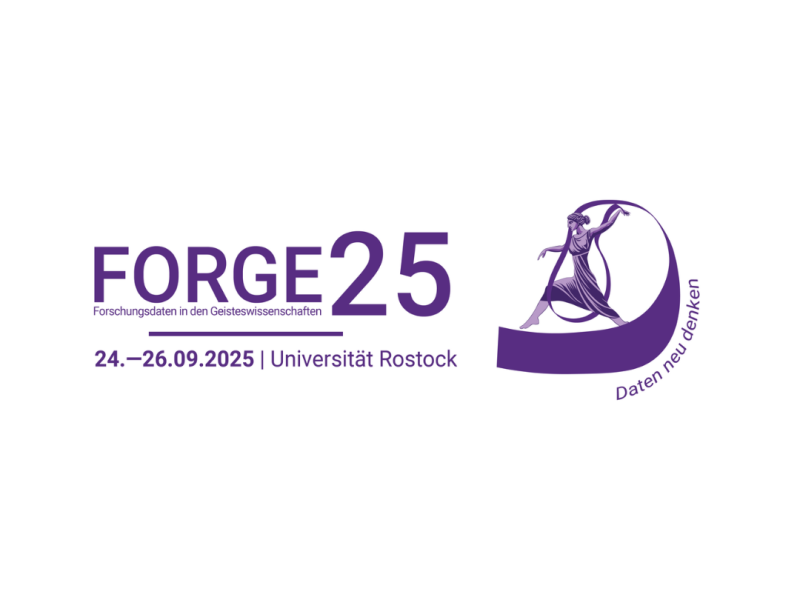Contributions to FORGE25-Conference
at University of Rostock

Date:
24.09.2025 bis 26.09.2025Place:
University of Rostock
Categories:
ConferenceContact:
Vivien WolterFurther Information:
conference websiteContributions
Thursday, September 26, 2025, poster session, 4:00–5:30 p.m.
- Poster by Julia Alili and Vivien Wolter: “Destroyed Cultural Heritage – The Contextualized Processing of Cultural Research Data”
Friday, September 27, 2025, “Metadata for Theater, Musical Works, and Editions,” 9:00 a.m. – 10:30 a.m.
- Lecture by Vivien Wolter: “Modeling theatrical production characteristics in Wikidata”
FORGE25 – Rethinking data
Research data and how it is handled, known as research data management (RDM), has long been established as a field of activity at various research institutions, cultural heritage institutions, and in scientific communities. They are an important part of scientific work and the knowledge process, whereby they must always be viewed in the context of the increasing digitization of science and society and are currently associated with a further transformation process due to the rapid advancement of artificial intelligence methods.
The fact that research data and FDM have become indispensable in scientific work is evidenced by numerous infrastructures and services that have been established at universities and beyond in recent years. The topic is also regularly discussed at relevant conferences. But what is the situation in the humanities themselves? It can be assumed that research processes there are already “datafied,” meaning that they are based on digital data. But are we as researchers already confident in handling this data? And even if we are already routinely creating, using, managing, publishing, and archiving research data, are we still recognizing new facets, challenges, and potentials of the data?
With this year's FORGE, we want to focus on new forms of research data, explore existing data in new ways, develop innovative approaches to handling research data, and rethink research data and its management. The aim is to critically reflect on our research data, identify overlooked aspects in the data, optimize its quality, and make it more visible and easier to reuse. We should also take into account and make use of new social and technical developments for research data in the humanities and, as researchers, become more competent in handling our data in new ways.

